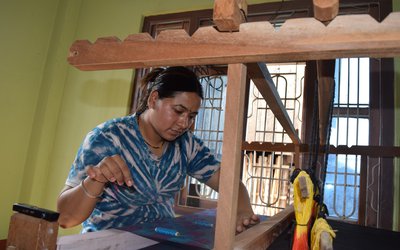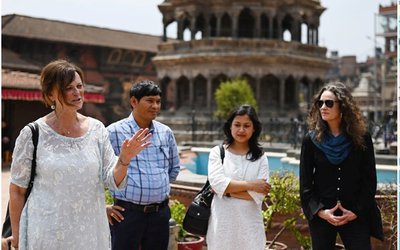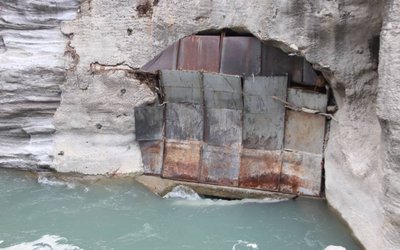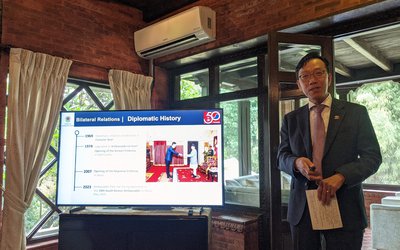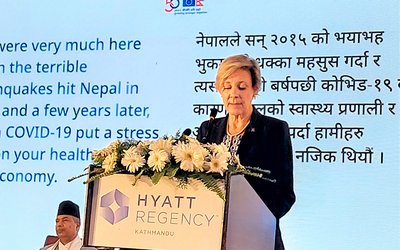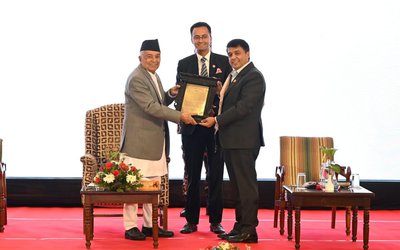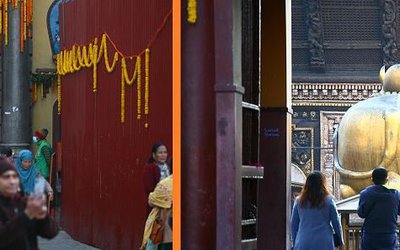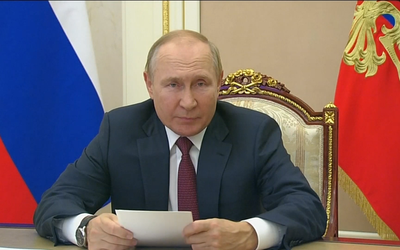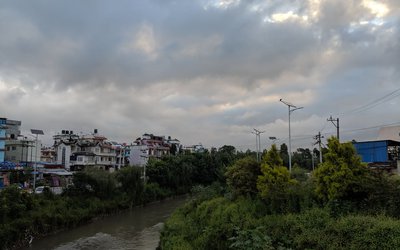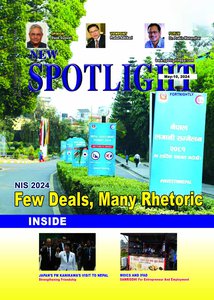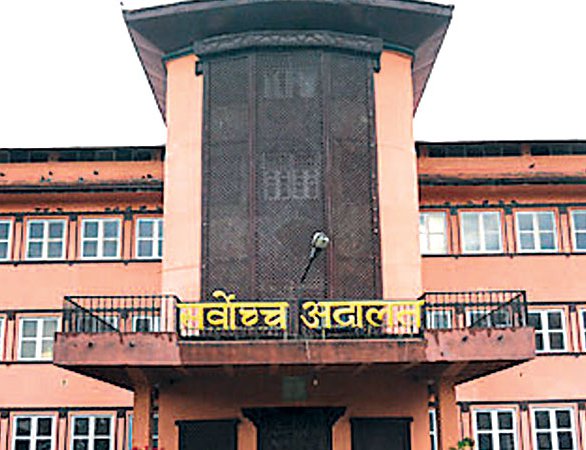
A promising police officer who aspired to head the organisation resigned from service last week after the Supreme Court dismissed his petition challenging the appointment of his colleague as the police chief. A five-member bench headed by Chief Justice Gopal Pasad Parajuli did not respond to Nabaraj Silwal’s contention that he had a better claim to the post than Prakash Aryal, the man the government chose for the job.
The preference of the apex court on the matter was clear from the beginning. The previous CJ, Sushila Karki, had left no one in doubt that Silwal was her favourite. She retired in May and Parajuli, the man she hated and even tried to stop from heading the court, succeeded her. Thereafter, Silwal had no chance of winning the case. While the appointment of the police chief is deemed the prerogative of the cabinet, the current legal tussle has brought to the fore how the judiciary is getting embroiled in party politics. The breach of lines has cost the institution its credibility. The judiciary’s fall, of course, should not be seen in isolation. But the brazen display of partisan behaviour and open proximity to political parties is a recent phenomenon.
Soon after the radical political changes in 2006, the key political parties including the Maoists, Nepali Congress, the Communist Party of Nepal-Unified Marxist Leninist and the Madhes-based parties, announced they would henceforth rule together and conduct the business of the state on a consensual basis. All of them were fearful of the independence and fair conduct of the judiciary, which on several occasions had reversed decisions not only made by the executive and legislature, but also the king. The new regime wanted to be absolutely sure that the apex court would not come in the way of the political course it intended to pursue.
The coalition government led by G.P. Koirala decided that all the judges would need to take a “fresh oath” since they had served under the monarchy. No party contested the decision. As the monarchy was put under suspension, Koirala himself assumed charge as the acting head of the state in addition to holding the office of the prime minister. He was at the same time the chief of Nepali Congress Party. He administered the oath of office to the new CJ, Kedar Prasad Giri. The sitting judges were also asked to prove their eligibility through parliamentary hearing that visibly works under the control and diktat of the party leaders. The practice is now incorporated in the constitution. It is normal now for the CJ and other judges to be identified as nominees of one or the other political party. The public also believes that the political “affiliation” of judges influences their ruling. The compromised judiciary is also linked to corruption at the highest political levels.
The constitution provides for a judicial commission headed by the CJ and including the next senior judge, the law minister, nominees of the prime minister and the Nepal Bar Association to recommend judges to the Supreme Court and the seven provincial high courts. However, with the CJ and judges turning pliant, the ruling party gets to influence the nominations. Of late, many international donors who work in partnership with the apex court are also perceived to be exercising some say in the appointment of judges. International donors inviting a particular judge or a set of judges to participate in an international seminar or workshop is no longer uncommon. The conflict of interest is rarely mentioned.
CJs in the recent past have “mysteriously” taken up cases already disposed off, and according them unprecedented priority. CJ Sushila Karki accorded top priority to an appeal filed as a PIL and ruled that Lokman Singh Karki, head of the anti-graft Commission of Inquiry into Abuse of Authority (CIAA), did not have the prescribed qualification to hold the post. Interestingly, her successor, Parajuli, was one of the judges in the three-member bench headed by CJ Karki’s predecessor that had held that the CIAA chief was qualified to hold the office. Judges may interpret facts differently and rule accordingly. But in the case of Parajuli and Karki, their political affiliations seem to cast a shadow over the functioning of the judiciary and judicial fairness.
CJ Karki had ruled on the age of Parajuli that shortened the latter’s tenure in office to a mere 54 days. However, CJ Parajuli undid the order citing “previous rulings” and precedents. He is now set for a tenure of 10 months. His ruling in the Silwal case is an endorsement of a decision made by the political parties he is perceived to be close to.
This is just the tip of the iceberg of corruption and irregularities in the judiciary. When public anger over corruption boils over, the judiciary, and its partner in crime, the political establishment, are likely to face the heat.
Courtesy: Indian Express

Yubaraj Ghimire
Ghimire is a Kathmandu based journalist.
- Why ‘Revolutionary’ Communist PM Prachanda Went To Temples In India
- Jun 08, 2023
- Why China Is Happy With Nepal’s New PM
- Jan 03, 2023
- Prachanda Sworn In As PM: New Tie-ups In Nepal, Concern In India
- Dec 27, 2022
- Young TV Anchor As Its Face, RSP Rise Takes Nepal By Surprise
- Nov 23, 2022
- Nepal Votes, Why The Verdict May Not Make New Delhi Very Happy
- Nov 23, 2022

